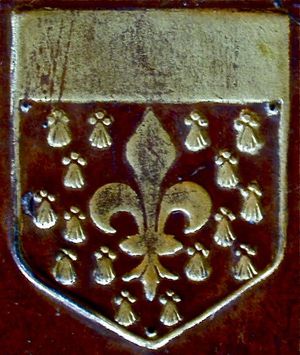Difference between revisions of "John Gayer 1584-1649"
m (Text replacement - "[[organisations::the " to "the [[organisations::") |
m (David moved page Sir John Gayer to John Gayer 1584-1649 without leaving a redirect) |
(No difference)
| |
Latest revision as of 06:51, 5 October 2021
Sir John GAYER 1584-1649
Biographical Note
Born at Plymouth, son of John Gayer, merchant. After apprenticeship to a London merchant he became established himself in the Levant and East India trades. He served on the governing bodies of the Levant and East India Companies, became an alderman of the City of London (sheriff 1635-6), and was prime warden of the Fishmongers' Company in 1638. He was a candidate for the mayoralty in 1640 and was knighted by Charles I the following year. Although identified at that time more as a parliamentarian than a royalist, his sympathies changed and when he became Lord Mayor in 1646 he was implicated in the insurgence against parliament and the army in summer 1647, when parliament was invaded and Independent officers purged from the London militia. Gayer was sent to the Tower, replaced as Lord Mayor, threatened with impeachment, but released in 1648; the following year, on the establishment of the Commonwealth, he was formally deprived as an alderman, and he died shortly afterwards.
Books
Gayer's will reveals substantial wealth and is largely concerned with the disposition of money, plate and property; he made charitable bequests to Plymouth, and divided the residue of his estate amongst his children. There is no mention of books. His inclusion in this listing is based on the survival of two armorial bindings with the Gayer arms, which appear to be his. Examples: National Art Library CLE F30.
Characteristic Markings
The book in the NAL, a collection of 1640s tracts by Sir Henry Spelman on tithes and the treatment of churches, has no annotations or inscriptions.
Sources
- British Armorial Bindings.
- Ashton, Robert. "Gayer, Sir John (bap. 1584, d. 1649), merchant." Oxford Dictionary of National Biography.
